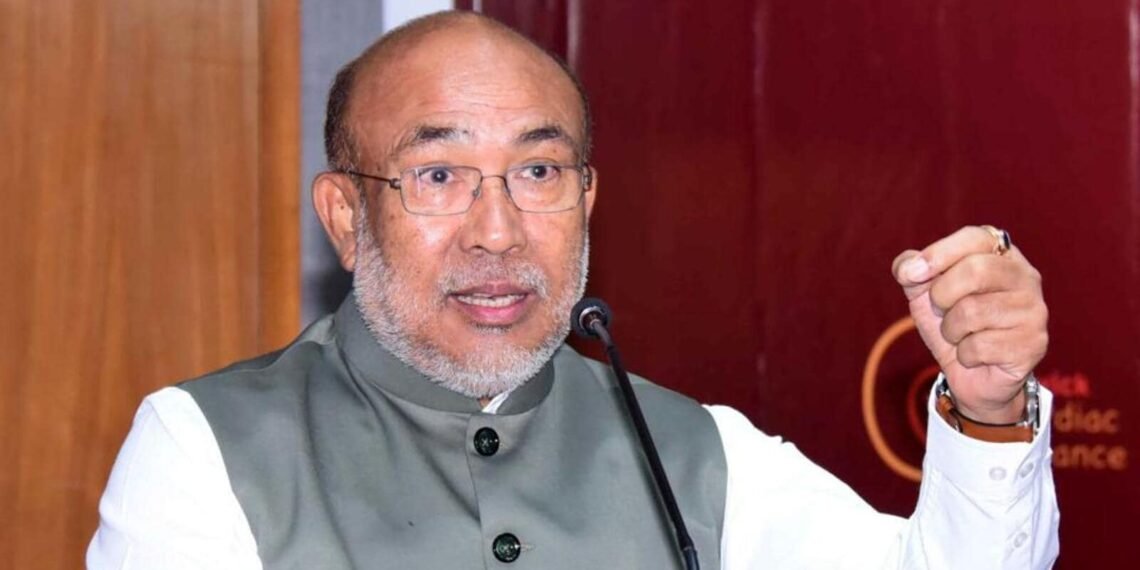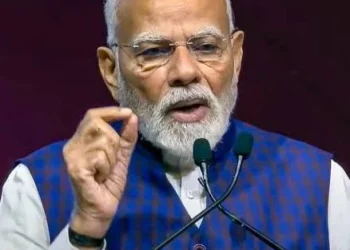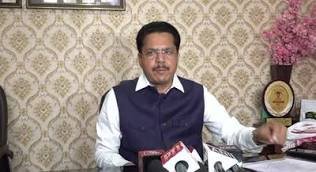As Manipur reels under ethnic tensions, BJP faces deep internal divisions over selecting a new Chief Minister. With rival factions jostling for control and the Kuki community distancing itself, the state’s leadership crisis intensifies.
BY Navin Upadhyay
The political landscape in Manipur remains uncertain as the selection of a new leader among Bharatiya Janata Party (BJP) legislators has hit a deadlock. A special meeting scheduled for Monday, which was expected to address the leadership crisis, has been indefinitely postponed.
This delay signals that the return of a popular government in Manipur is unlikely in the immediate future, prolonging the period of President’s Rule imposed on February 13 following Chief Minister N. Biren Singh’s resignation.
The Political Crisis and BJP’s Factional Struggles The leadership crisis within the BJP is fueled by intense factionalism. Three distinct groups have emerged:
The Pro-Biren Singh Faction A significant number of BJP MLAs remain loyal to former Chief Minister N. Biren Singh, who, despite stepping down, retains considerable influence. His tenure was marked by a strong political and administrative grip over the state, and his loyalists argue that his leadership is still necessary to navigate the ongoing ethnic crisis between the Meitei and Kuki communities.
ALSO READ:
The Assembly Speaker’s Camp Another faction within the BJP aligns itself with the Speaker of the Manipur Legislative Assembly, Thokchom Satyabrata Singh., who is believed to be eyeing the Chief Ministerial post. This group seeks to distance itself from Biren Singh’s legacy, believing that his leadership has become too controversial due to the prolonged ethnic strife and allegations of mishandling the situation. The faction argues for fresh leadership to restore political stability. Former Ministers Thongam Biswajit Singh and Yumnam Khemchand Singh are also seen as contenders for Chief Minister’s post.
The Kuki MLAs and Their Dilemma Kuki MLAs form the third group, but they face immense pressure from their community to avoid joining any new BJP-led government unless their demands for a “Separate Administration” for the Kuki-Zo tribes is met. These MLAs fear backlash if they are seen aligning with a government that many in their community perceive as biased against them. While these MLAs hold bargaining power, they are currently refraining from active participation in government formation.
ALSO READ: How Could Seilen Haokip Have Hijacked a Conversation That Hadn’t Even Begun?
Postponed Meeting and the Road Ahead BJP joint convenors Kh. Ibomcha and Kongkham Robindro had issued a notice for a special meeting at MLA Sapam Kunjakeswor’s residence to deliberate on reinstating a popular government. However, the meeting was postponed indefinitely, citing the absence of key MLAs due to medical and other personal reasons. This delay has further exacerbated concerns that the party lacks consensus on the way forward.
With 35 BJP legislators in the sixty-member Manipur Legislative Assembly, the party theoretically has the numbers to form a government. However, the absence of a unified front within the BJP and the overarching issue of law and order makes government formation a secondary priority for the central leadership.
ALSO READ: Manipur Drone Bombing: Five Questions NIA Must Answer
Law and Order Concerns and the Persistence of President’s Rule The imposition of President’s Rule in Manipur was justified on the grounds of deteriorating law and order. The central government remains unconvinced that reinstating an elected government would immediately stabilize the situation. Instead, the priority has shifted to a larger peace process, aimed at bringing the warring Meitei and Kuki communities to the negotiating table.
Additionally, the surrender of arms and ammunition remains a critical concern. The Governor’s February 20 ultimatum for surrendering illegal arms has led to limited compliance, with some weapons being turned in voluntarily. However, concerns persist over the large number of weapons still in circulation, particularly those in the hands of Kuki insurgents and Meitei village volunteers.
ALSO READ: “Sort it out,” was Swapan Dasgupta’s advice to the Delhi Lit Fest organizers over the Seilen Haokip row.
The Challenge of Recovering Weapons The weapons issue further complicates the state’s security situation. According to sources, while weapons looted from police stations and security forces are being surrendered in the valley, the hill districts remain heavily armed. Kuki groups possess weapons obtained from multiple sources, including:
- Looted police and security forces’ arms.
- Weapons registered under the Suspension of Operations (SoO) agreement.
- Licensed guns owned by individuals.
- Sophisticated weapons smuggled from Myanmar.
- Locally made firearms.
Given this scenario, questions arise about whether the government will conduct thorough search operations in hill areas to recover these arms or if the status quo will remain, potentially prolonging the cycle of violence.
While the BJP remains in control of the Manipur Assembly in terms of numbers, the internal power struggle, the broader ethnic crisis, and security concerns make the return of an elected government a distant prospect. The central government appears to be prioritizing conflict resolution over immediate governance restoration, recognizing that without addressing underlying ethnic tensions and security issues, a new government would likely be ineffective.
As the crisis deepens, political observers suggest that it could take months before Manipur sees the reinstatement of a popular government. The BJP’s internal conflict, the strategic positioning of its factions, and the overarching security concerns will continue to shape the state’s political future in the coming months.














